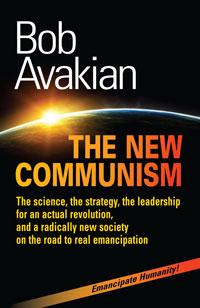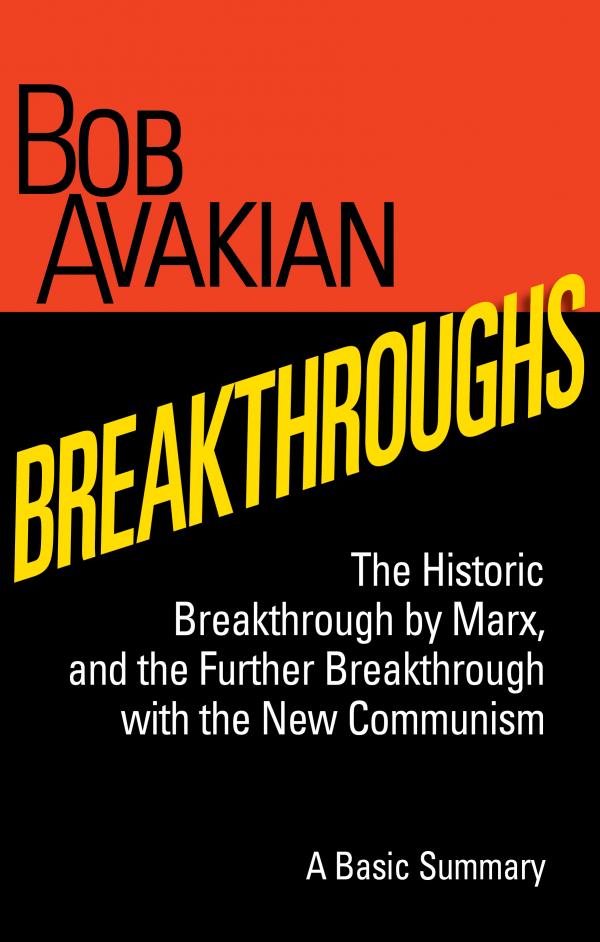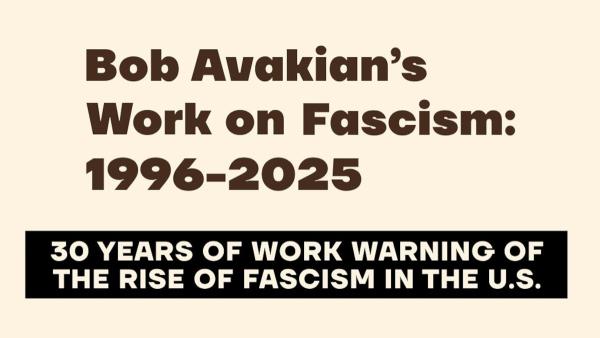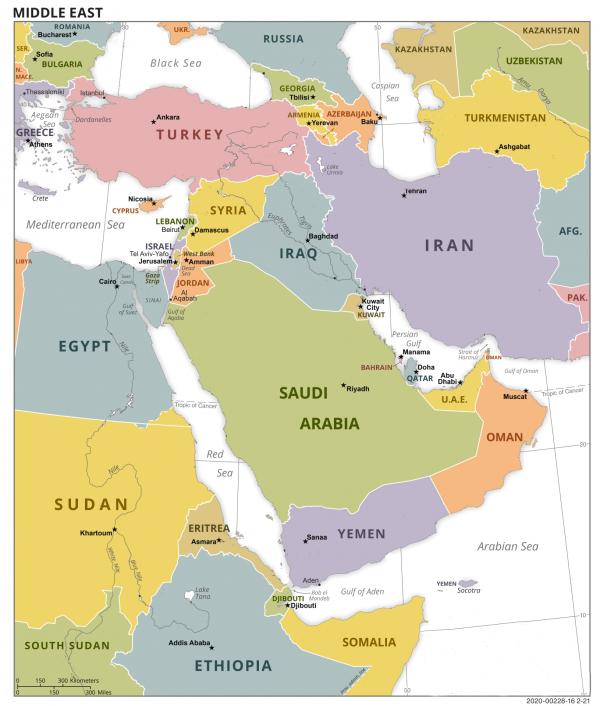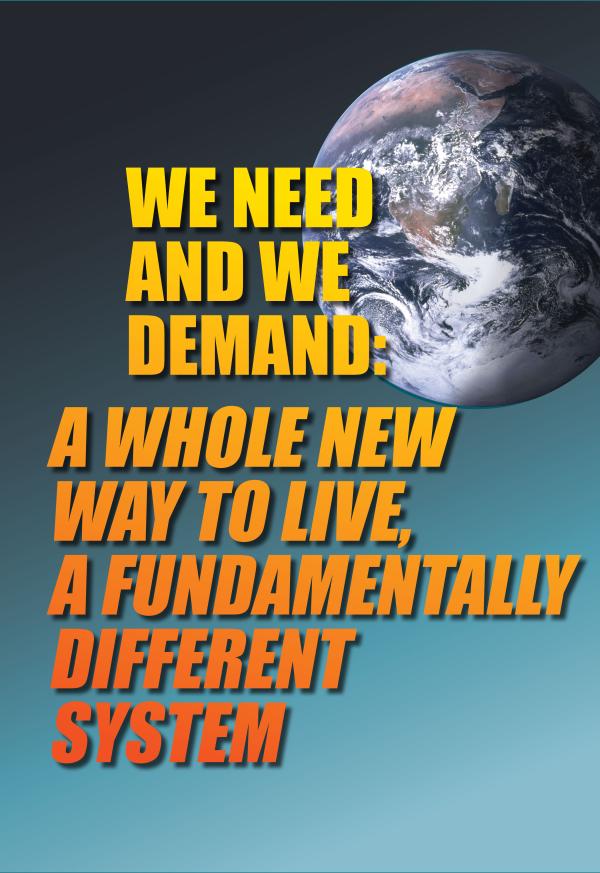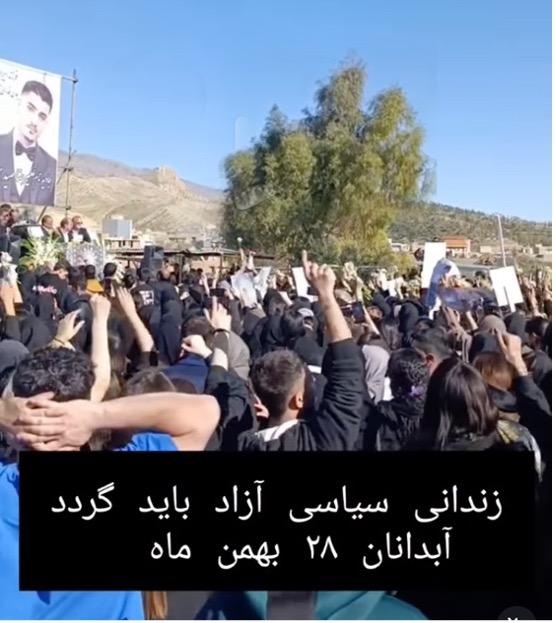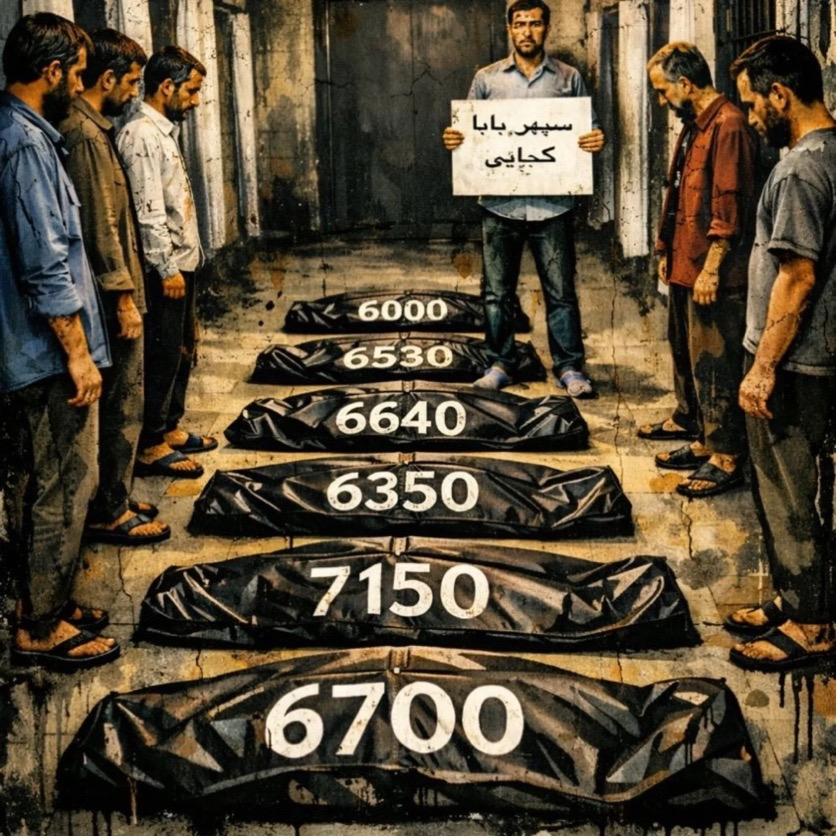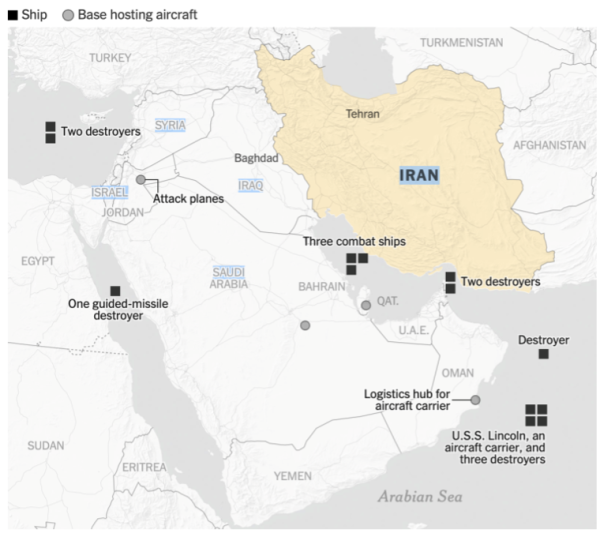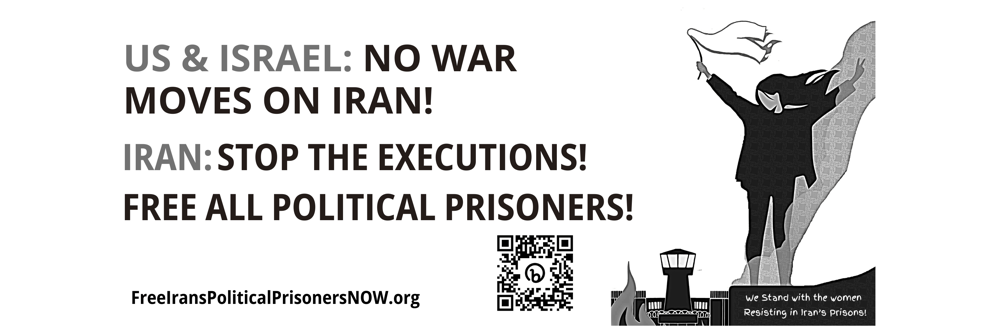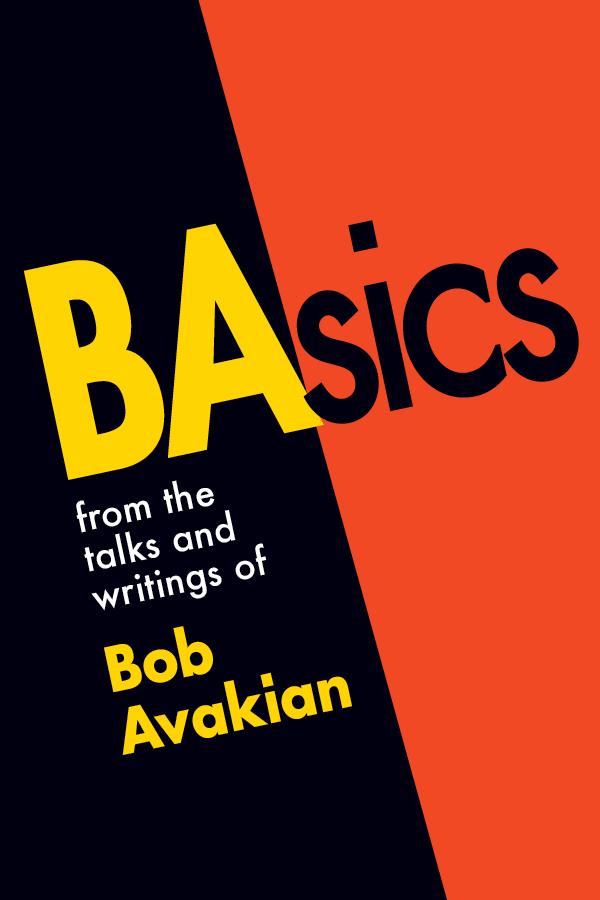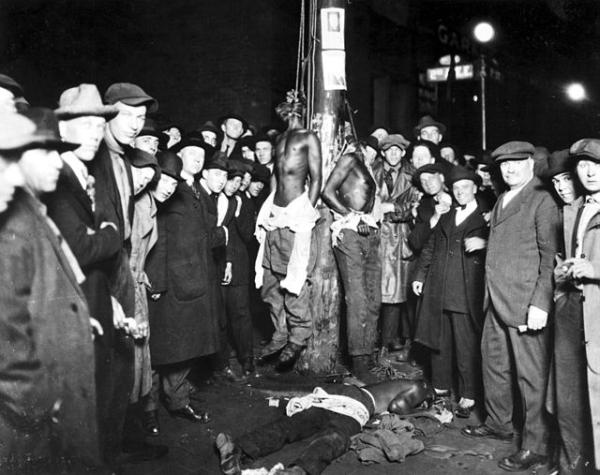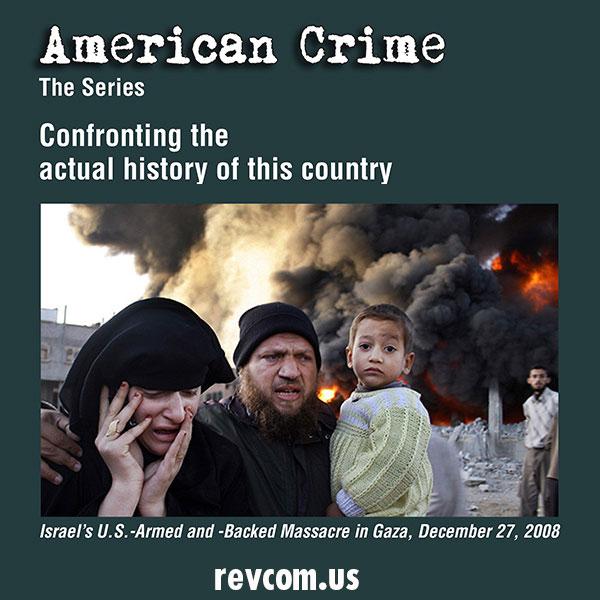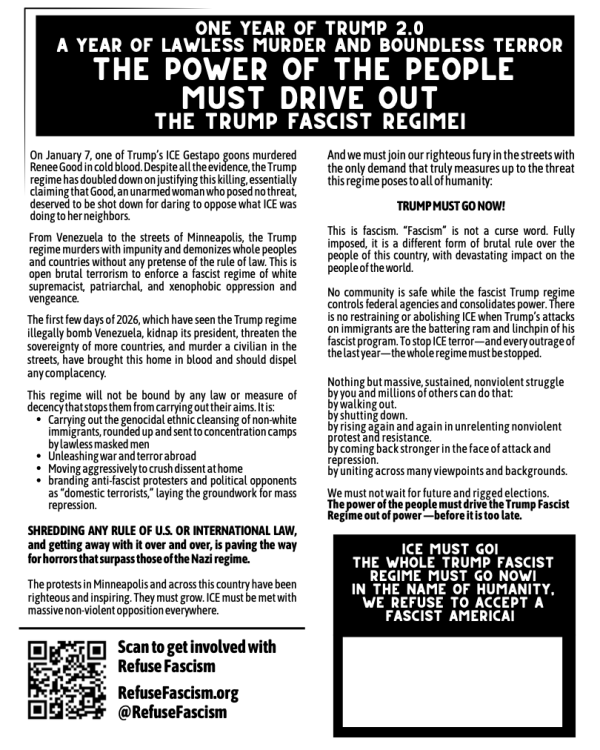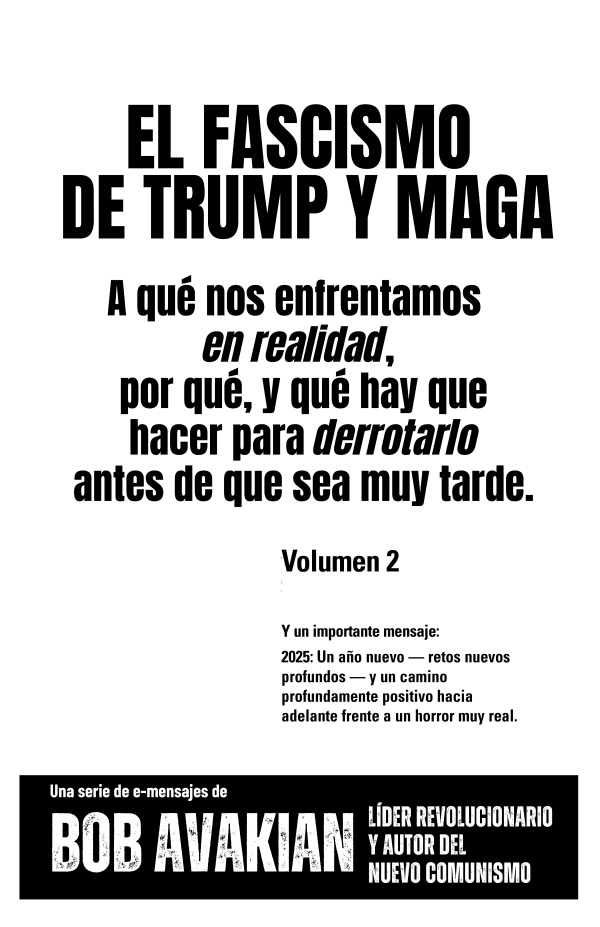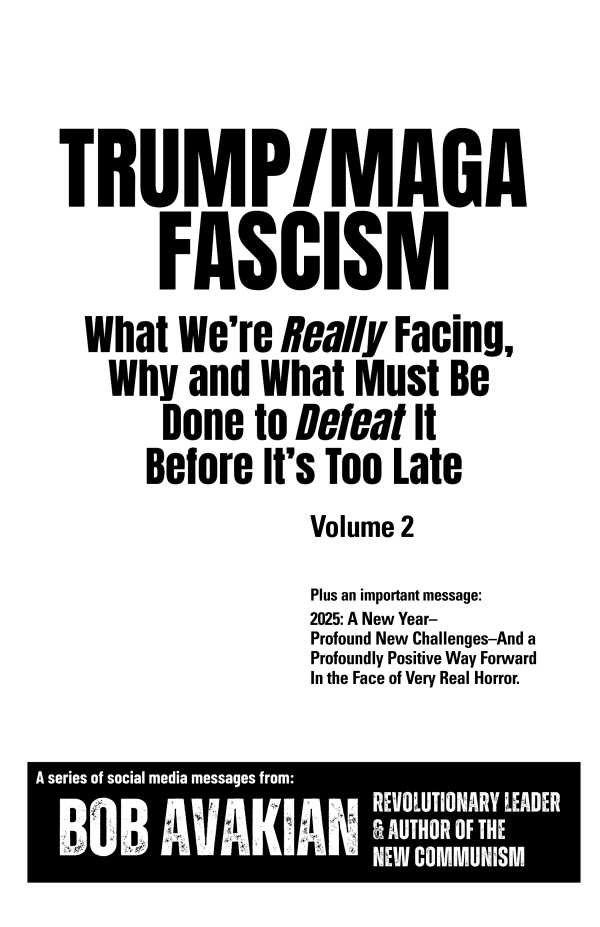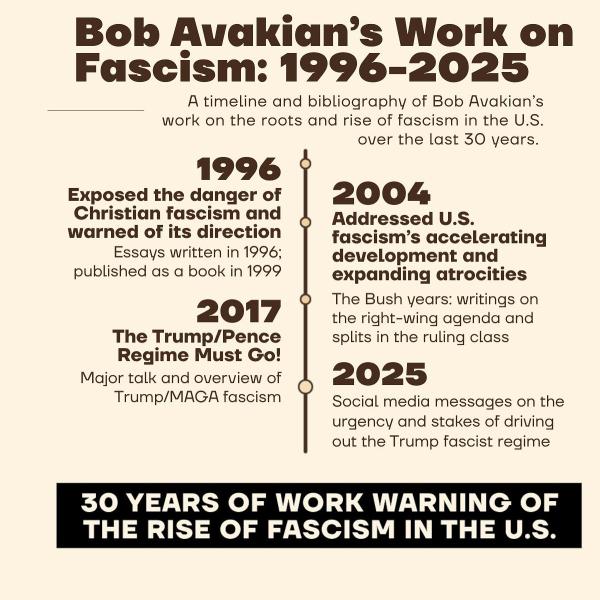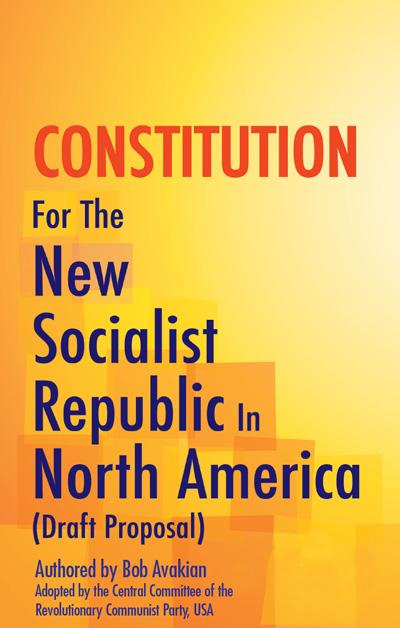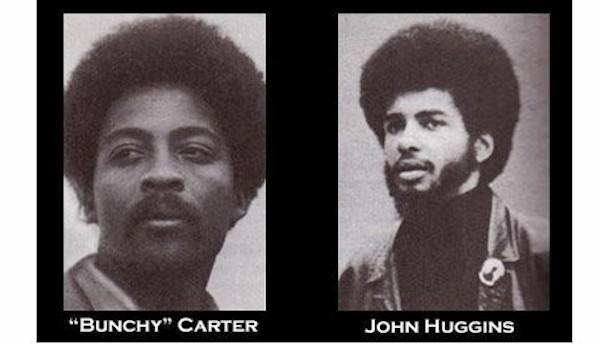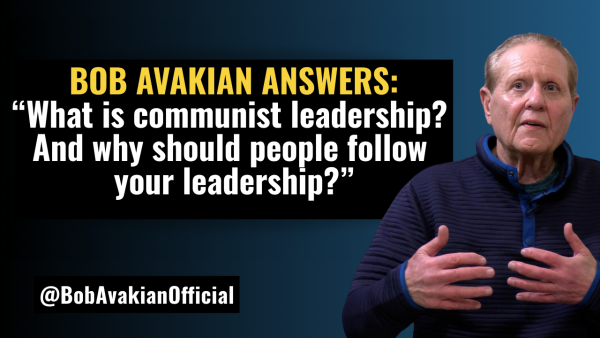
C. CLARK KISSINGER has been a prominent organizer, activist, writer, and speaker since the early 1960s. In the early ’60s, Clark was national secretary of Students for a Democratic Society (SDS), and he organized the first March on Washington to End the War in Vietnam (1965). He is a revolutionary communist and advocate for the new communism developed by the revolutionary leader Bob Avakian.
During my now 65 years as a political activist, I have witnessed many things, three of which I want to single out as being of lasting significance. My appreciation of each of them today comes not so much from my “having been there,” but from an understanding of their significance gained over time, with the help and input of many comrades and friends.
1. THE SIXTIES
There is a mistaken impression that “the sixties” was an American phenomenon. What we now call “the sixties,” was actually a global upsurge of resistance and revolution extending from the late fifties through the mid-seventies. It embraced both rebellions in the advanced capitalist countries as well as socialist and anti-colonial revolutions in the Third World. 1968 alone was a year of global rebellion much like 1848. It saw the student-worker revolt in France, the Tet Offensive in Vietnam, the explosion of the Cultural Revolution in China, the massacre of student demonstrators in Mexico, the popular resistance to the Russian invasion of Czechoslovakia, the birth of the Palestinian resistance at the battle of Karameh, the Naxalite rebellion in India, martial law declared in Uruguay in response to the Tupamaros, as well as the urban uprisings in the U.S. following the assassination of Martin Luther King, Jr. and the growth of the Black Panther Party. (See my chronology of 1968 posted on www.dissident.info.)
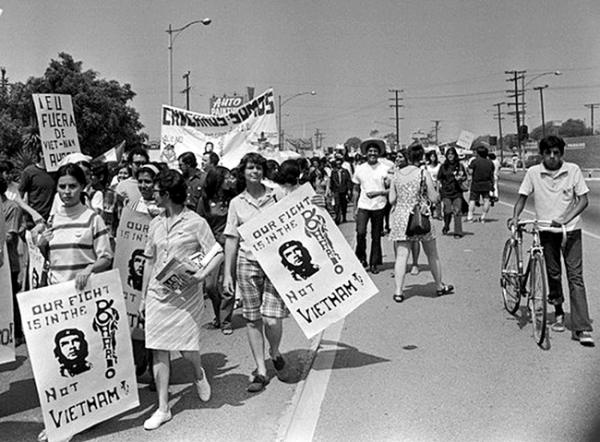
The 1970 Chicano Moratorium was an expression of resistance and defiance against the U.S. war in Vietnam.
What is important to take away from the particular experience in the U.S. is what a growing revolutionary situation can look like. It is commonplace for people who were not there, or for people who were there but have been “recouped” by the ruling class, to sneer at how foolish people must have been to think that there could have been a revolution. Really? Let's take a look.
The first ingredient of a revolutionary situation is a severe crisis in the ruling class that causes it to split and not be able to rule in the old ways. Such a political crisis does not necessarily arise from an economic crisis. In fact, the period of so much intense upsurge in the sixties, during which the ruling class was very much thrown on the defensive politically, coincided with the peak economic power of the U.S. globally.

Black GI throws back his medal at the Capitol during Dewey Canyon III, 1971.
What did happen was that masses of people threw off their superstitious awe of the state and seized the political initiative away from the ruling class. People labeled the police as pigs. Soldiers in Vietnam refused to obey orders and rolled hand grenades into the tents of officers who were too gung-ho. Students burned down dozens of ROTC buildings. Women flat-out rejected the institutions of patriarchy. There were massive urban revolts in the U.S. and a growing Black liberation movement. The state had lost legitimacy in the eyes of millions.
One result was a furious debate within the ruling class over how to handle the situation and regain control. Should there be a repressive clamp-down or should people be bought off with temporary concessions? The intensity of the struggle eventually led to a situation where both the president and vice president were forced to resign and the country had a president and a vice president who were appointed, not elected. That's what a crisis in the ruling class can look like. (For light entertainment, I recommend people read former Vice President Spiro Agnew's memoir Go Quietly... or Else.)
The second requirement of a revolutionary situation is a revolutionary-minded people. They don’t have to be a majority, but they do have to be a significant force. In the ’60s there was a great awakening to the reality that the “American Dream” was actually an American nightmare for so many people here and around the world. While there was no deep understanding of what an actual revolution would require, literally millions of people came to believe that the existing system was hopelessly flawed and what was required was a “revolution.” Far from being a social stigma, there was a great deal of approbation for people who called themselves revolutionaries.
People also began to act on their new self-identity. It was immoral to remain a passive observer. Demonstrations in Washington became so militant that the Nixon administration took to surrounding the White House with a wall of buses for fear that people would storm the seat of executive power. The call to shut Washington down in May of 1971 resulted in such an outpouring that the Army was called in to defend the capital and over 12,000 people were arrested—the largest mass arrest in U.S. history.
But while we at least had a start on the first two requirements of a revolutionary situation, what we did not have was the third ingredient: a revolutionary party with the determination, the understanding, the plan, the leadership, the organization among the people, and the program for a post-revolutionary society that could both galvanize and lead a successful seizure of power. Even the most advanced force in that time, the Black Panther Party, never sat down and seriously addressed the question of what it would take to actually overthrow the state and lead a new revolutionary society.
2. THE GREAT PROLETARIAN CULTURAL REVOLUTION
Few people today are familiar with even the outlines of the Great Proletarian Cultural Revolution (GPCR), and it is probably the single most lied about event in world history. It was an amazing ten-year mass upsurge in China led by Mao Zedong to break the power of the entrenched revisionist “communists” who wanted to follow the path of the Soviet Union, a path that would—and ultimately did—lead to the restoration of capitalism.
It was my privilege to have visited China twice during the latter half of the Great Proletarian Cultural Revolution. As with the sixties, my understanding of what happened in this momentous world event comes more from study after the fact and from the insights of others, than from my own personal observations. That said, it was still amazing to see with my own eyes!
While books and films on the GPCR correctly focus on the demonstrations, mass meetings and “big character posters” that were at the heart of the struggle for power, one aspect of the GPCR that is little recognized is that it produced the most massive political education program in human history. At each point, the entire country was mobilized to read and discuss the same major theoretical work. When I was there in 1972, people were studying Anti-Dühring by Engels and in 1975 it was Marx's Critique of the Gotha Program. At one point I kind of naively asked if they really had enough copies of Anti-Dühring for everyone to read. I was told in a rather matter-of-fact way that the state publishing house had just run off another 50 million copies. Now that's taking study seriously!
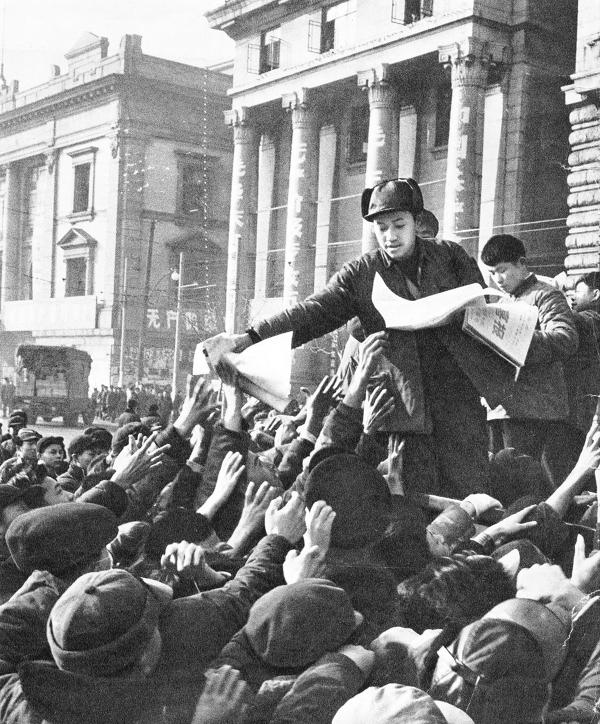
In Shanghai, the revolutionary workers, with Maoist leadership, were able to unite broad sections of the city’s population. This was called the January Storm.
Another often forgotten aspect of the GPCR that impressed me so much were the “socialist new things.” I wrote about these at the time. These were experiments from below in forging new social and economic relations at a local level that presaged what a future communist society might look like. There were places where local communities consciously turned what had been commodities into social services. The use of these services was no longer linked to or exchanged for money earned by the recipients of those services. People used what they needed and contributed to the common weal in other ways.
In 1972, I visited a small village near the Daqing oil field in Manchuria. In this village, the women all worked—but in different sectors of the socialist economy. Some women worked in the fields as part of the local agricultural commune. They were paid mostly “in kind” from the crops. Some other women worked in a small local co-op factory that manufactured tacks. These women were paid from the money received from selling their tacks to the state. Finally, some women had jobs in the oil field and were paid cash wages directly by the state.
The interesting fact here is that all the women worked hard, yet they received quite different incomes that were based on the differing economic productivity of their labor. The women who worked in the fields had the lowest income. The women from the tack factory were in the middle. The women who worked in the oil field made the most, because the productivity of the state-owned oil field was the highest.

People gathering to discuss a "big-character poster," a popular means of political expression and protest during the Cultural Revolution in China, contributing to the atmosphere of broad debate over policy and direction of society.
The women in the village were all involved in studying Marx and they were wrestling with a theoretical question: They understood why some of them made more money than others. But did it have to stay this way? They didn’t think so. So, they decided to pool their incomes from the three different sources and divide the money more evenly. This was a startling break with the laws of exchange in a market-based economy. It was, in fact, revolutionary! It was a step toward communism, made by people consciously breaking with the concepts of “cash value” and private ownership as natural and inevitable.
In the end, the socialist transition to communism was defeated in both the Soviet Union and in China; capitalism was restored. “Living labor” was once again subordinated to “dead labor” (capital as accumulated labor). The slogan “Serve the People” was replaced with the slogan “To get rich is glorious.” The great lessons learned under the leadership of Mao were that the revolutionary seizure of power is only the beginning, not the final goal, and that you cannot “produce your way to communism” by increasing the level of material abundance. The period of socialist transition is much more characterized by intense class struggle over changing economic and social relations that requires a leading core that is consciously striving for a classless society.
3. THE BIRTH OF THE NEW COMMUNISM OF BOB AVAKIAN

Bob Avakian, 2014
The most important and lasting thing to come from the sixties is the new communism of Bob Avakian. Avakian is the architect of a new framework for human emancipation and is, without question, the Karl Marx of our time.
The defeat of socialism in the Soviet Union and China presented a big issue to “sixties people.” But Avakian refused to accept the triumphalist conclusions of the propagandists for capitalism. He has now spent over 50 years investigating what actually happened and has upheld the tremendous achievements of the Russian and Chinese revolutions. But he then dug into not only what was done right, but why mistakes (some of them quite grave) were made. With what method and approach did the leaders of these revolutionary societies address the freedoms and necessities they confronted? And how might we today do it differently and far better?
I will try to lay out what I see as some of Avakian’s important conclusions and insights, but no one should take my observations as “authoritative” and they certainly do not replace the need to actually read Avakian’s basic works.
What Avakian highlights is the failure to be thoroughly scientific; scientific meaning to bring one’s ideas into correlation with reality and not wishful thinking. Too often, 20th century communism (the “old communism”) fell into an almost religious approach, substituting belief for reality. One striking example was the teleological claim that communism is inevitable. Communism is NOT inevitable; it is possible, there is a material basis for it, but it is not inevitable.
I think what has impressed me the most in Avakian’s work is his new conception of socialism. Too many people today think of a socialist state as one with a “mixed economy” in which capitalism is restrained by the power of representative democracy while the state guarantees a basic standard of living and medical care for all.
By contrast, Avakian has built on Marx’s concept of socialism as a period of transition in which the class dictatorship of the capitalist class is replaced by the class dictatorship of propertyless working people and their allies. The conscious goals of this transition are an economy governed by social needs rather than by a commodity market, and an end to the necessity for one section of society to hold institutionalized power over the rest.
Another way of characterizing these goals was stated by Marx: the abolition of all class distinctions, of all the production relations on which those class distinctions rest, of all the social relations that correspond to those production relations, and the revolutionizing of all the ideas that correspond to those social relations.
But a barrier to masses of people taking up this understanding was the too frequent suppression of critical thinking by the old communism. In contrast, Avakian calls for a socialist society with room to disagree and “air” for people to breathe. While maintaining socialist state power against any violent attempts to restore capitalism, the new socialist state is best characterized as having a solid core with a lot of elasticity. Communists should never fear the truth and should encourage dissent, because all truths can be learned from.
Avakian points out that contradictions can arise between the people and a socialist state. While the socialist state has to protect the people from external enemies and any forceful restoration of capitalism, the socialist state also has to protect the rights of the people from the state itself. Of particular importance is Avakian’s insistence that communists lead the state mainly through ideological and political influence and not through organizational control. Members of the communist party must be subordinate to the law and the constitution of the socialist state, and are afforded no special privileges by virtue of being members of the party.
In particular, Avakian calls not only for the right of people to criticize the state and even call for the restoration of capitalism, but further, the state should in part fund such criticism and also fund the legal defense of persons prosecuted by the state to the same extent that the state funds their prosecution. This is a concept of legal rights that no capitalist state has ever dared espouse.
Avakian has also sharply criticized the ideas that truth has a class basis (rather than truth being objective) and that working and oppressed people have a special purchase on truth simply by virtue of being exploited or oppressed. From this flowed the faulty idea that just putting working people in positions of power, rather than fighting for all of society to have a deeper understanding of the path to classless society, would solve the problems.
Another example of faulty analysis in the old communism is the idea that the basis for communism is material abundance, from which flowed the idea that a socialist state could just “produce its way to communism.” There is a certain required level of abundance to have a communist economy, but the principal necessity is the change in people’s thinking and social relations—not how much material wealth there is to go around.
The old communism also did not always do well with issues of internationalism. The goal of communist revolution is not the improvement of the lives of the people in a given country, but rather the global emancipation of humanity from the fetters of capital. As Avakian points out, the principal task of a communist country is to serve as a base area for world revolution. Yet too often communist leaders succumbed to nationalism and concentrated on the interests of their own country.
Plus, there was a serious failure in the moral underpinnings for communism and the road to get there. The new communism of Bob Avakian is firm in holding that the ends do not justify the means. Crimes cannot be committed on the grounds that they will get us closer to communism. Rather, communist means must always flow from and be consistent with the goals of communism.
Like Marx, Avakian has been a prolific commentator on current events and has provided invaluable guidance. In particular, he has over the last forty years documented and warned of the rise of Christian nationalism and fascism in this country. (Here, see Bob Avakian’s Work on Fascism: 1996-2025.) People in Germany might have had the excuse that “no one could have seen what was coming.” People in this country cannot claim that excuse.
At the same time, Avakian has looked much more deeply into the path for revolution in developed capitalist countries, and the deadly pull on even the best-intentioned people toward overestimating the strength of necessity and underestimating the freedom that exists to transform that necessity—ultimately leading them to either denying the possibility of, or just sitting and waiting for, a revolution. Instead, what is required is an active analysis of the fault lines of the existing society and constant straining at the limits of the possible with a concrete goal in mind: the hastening of a revolutionary situation.
It is important to understand that the body of work that Avakian has created is not an add-on, a refinement, or a particular application of Marxism. Rather it is a qualitative leap in the science itself, comparable to the leap made by Marx. At the time of Marx, capitalism had consolidated state power in America and the major states of Europe, and was spreading across the globe like a metastatic cancer. Humanity had nothing to confront it with save bourgeois democracy, syndicalism, or utopian concepts of socialism, often based in religion. Marx changed all that with a scientific explanation of the capitalist system and what had to be done to abolish it.
Today, with the defeat of the great revolutions of the 20th century, the globalization of capitalist production, the existential climate threat to the planet, and the world-wide spread of fascist movements, the old tools of bourgeois liberalism, social-democratic labor movements, and even the best of past communist thought, have been shown to be utterly inadequate to the challenges facing humanity. It is at this point that Bob Avakian has stepped forward to address what has to be done, but with a qualitatively transformed and more scientific, evidence-based method and approach. Avakian has given humanity the tools for its next great leap.
Like Marx in his time, Avakian is a controversial figure. Marx was considered something of a dogmatist and sectarian by the reformists of his day. To get a feel for this, people should watch Raoul Peck’s film The Young Karl Marx. Yet like other great scientists before and after him, the insights of Marx have proven basically true and have come to both shape our understanding of the real world and alter the course of history.
Having been witness to this development over many years now, I can say that if you are serious about emancipating humanity then you have to become a student of Bob Avakian. I have to admit that as a student of Avakian, I was often late for class and didn't always make good grades. But I never dropped out of school. Young revolutionaries today have the most advanced revolutionary thought in the world in their hands with their whole lifetimes ahead—and I still have another 15 years. Together, let's run with it!
There is much, much more, but I would encourage people to dig into Avakian’s many written works such as The New Communism, the Constitution for the New Socialist Republic in North America, and Breakthroughs.
Codicil
In December 2020 at the height of the COVID crisis in New York City, I was living a few blocks from a major hospital in Brooklyn. Outside the front of that hospital, lines formed daily of people waiting to be seen in the emergency room. Around back, behind the hospital, there was a row of refrigerator trucks for the bodies for which there was no longer room in the hospital’s morgue.
While that pandemic crisis has abated for now, the global warming crisis has not. We are now pretty much past the point of no return. For about three billion years, plants, algae and cyanobacteria have been patiently extracting carbon dioxide from the atmosphere, using solar energy to synthesize carbohydrates, and releasing oxygen back into the atmosphere. In the last three hundred years, that whole process has been dramatically reversed, with the burning of fossil fuels releasing carbon dioxide back into the atmosphere in massive quantities, trapping solar radiation in the form of heat.
Today, almost everything that moves in commerce (trucks, planes, trains) moves on energy released from the burning of fossil fuels (coal, petroleum and natural gas). Yet at the same time, the amount of energy that falls on the earth from solar radiation is more than enough to meet humanity’s foreseeable needs. So what prevents simply switching to solar energy in place of fossil fuels? The capitalism system.
Many trillions of dollars of capital are invested in both fossil fuel powered equipment and in the extraction and distribution of fossil fuels. To abandon that, would require the literal destruction of all that capital. The owners of capital have zero incentive to eat that massive loss, and they have the powerful compulsion from competing capital to continue with what they are doing. Only a new communist revolution can change this and put humanity first. This is a basic reality, yet most people find it easier to imagine the end of the world than to imagine an end to capitalism.
Interrelated with the climate crisis is the destruction of the viability of life for millions of people in their home countries. One result has been the mass migration of people from the global South toward white, imperial Europe and America. The year that I was born, 1940, was the “high water mark” for white people in America. Whites made up 90 percent of the population. Today, whites make up 60 percent of the population, and an even smaller percentage of school-age children.
That demographic change in the U.S., combined with the decline of U.S. economic power in the face of global competition and the impact of the movements of women and people of color, has provided the basis for a core of reactionary capitalists to organize a fascist movement. A movement appealing to the preservation of the economic well-being and social superiority to which white, male, Christian Americans feel entitled. Hence the emergence of a fascist movement to “Make America Great Again.”
The horrors that consolidated fascism will wreak on this country and the world are beyond the imagination of most people. Trump must be driven from power NOW, before it is too late.
